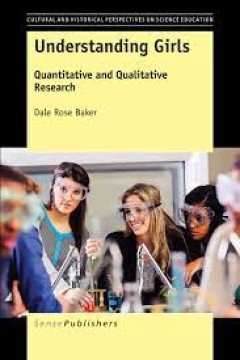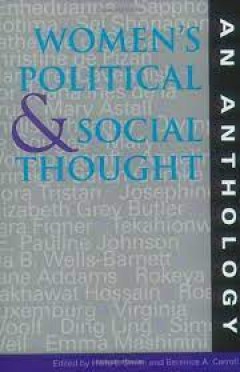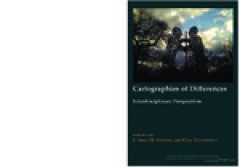Filter by

Understanding Girls
Understanding Girls: Quantitative and Qualitative Research is a retrospective of the author’s research that led to receiving the 2013 Distinguished Contributions Award to Science Education through Research. This book includes selected articles that document changes in her research approaches and theoretical frameworks. The articles represent the evolution of her thinking about the issue of gi…
- Edition
- -
- ISBN/ISSN
- 978-94-6300-497-8
- Collation
- -
- Series Title
- -
- Call Number
- -

Understanding Facial Expressions in Communication
This important volume provides a holistic understanding of the cultural, psychological, neurological and biological elements involved in human facial expressions and of computational models in the analyses of expressions. It includes methodological and technical discussions by leading scholars across the world on the subject. Automated and manual analysis of facial expressions, involving cultur…
- Edition
- -
- ISBN/ISSN
- 978-81-322-1934-7
- Collation
- -
- Series Title
- -
- Call Number
- -

Understanding Consumer Financial Behavior Money Management in an Age of Fina…
Government policies, marketing campaigns of banks, insurance companies, and other financial institutions, and consumers' protective actions all depend on assumptions about consumer financial behavior. Unfortunately, many consumers have no or little knowledge of budgeting, financial products, and financial planning. It is therefore important that organizations and market authorities know why con…
- Edition
- -
- ISBN/ISSN
- 978-1-137-54425-4
- Collation
- -
- Series Title
- -
- Call Number
- -

Women's Political and Social Thought An Anthology
Women's Political and Social Thought: An Anthology is the first collection of source readings of women's important writings in political and social theory from ancient times to the twentieth century. It fills a major gap in materials available for teaching the history of political thought and opens paths for exploring the rich and diverse contributions of women as creators of theory. Not confin…
- Edition
- -
- ISBN/ISSN
- 9780253069023
- Collation
- -
- Series Title
- -
- Call Number
- -

Concrete Horizons: Romantic Irony in the Poetry of David Malouf and Samuel Wa…
Drawing on Bernd Mahr’s model theory, this volume introduces a new approach to Romanticism in contemporary Australian literature. Focusing on two very different authors, David Malouf and the Indigenous poet Samuel Wagan Watson, this book highlights their similarities rather than their differences. It is the first book-length study dedicated specifically to each author’s poetic oeuvre. Compr…
- Edition
- -
- ISBN/ISSN
- -
- Collation
- -
- Series Title
- -
- Call Number
- -

Inclusion, Disability and Culture
This book examines some theoretical and empirical aspects about complexities of inclusion, disability and culture. It challenges the globalized technical and reductionist approach of inclusion and argues that concepts of disability and inclusion are culturally constructed. Disability and inclusion are concepts which do not define a global agenda, in the sense that one size fits all. Rather they…
- Edition
- -
- ISBN/ISSN
- 978-94-6209-923-4
- Collation
- VI, 212
- Series Title
- -
- Call Number
- 371 HAS i

Visually Provoking: Dissertations in Art Education
Visually Provoking - a dynamic collection of visually oriented research about current doctoral studies from international art educators in Australia, Canada, China, Egypt, Finland, Greece, Iceland, Portugal, Spain, and the United States of America. Together we are thinking about, with and through the visual, focusing attention on practices that are reshaping our understandings of intellectual e…
- Edition
- Ed. 1
- ISBN/ISSN
- 9789523109360
- Collation
- 248
- Series Title
- -
- Call Number
- 001.42 VIS v

Cartographies of Differences: Interdisciplinary Perspectives
This volume investigates the process of learning how to live with individual and group differences in the twenty-first century and examines the ambivalences of contemporary cosmopolitanism. Engaging with the concept of ‘critical cartography’, it emphasizes the structural impact of localities on the experiences of those living with difference, while trying to develop an account of the counte…
- Edition
- Ed. 1
- ISBN/ISSN
- 9783035397000; 9783034318594
- Collation
- 240
- Series Title
- New Visions of the Cosmopolitan
- Call Number
- 306.07 CAR c

Gender and Sustainability: Lessons from Asia and Latin America
This is one of the first books to address how gender plays a role in helping to achieve the sustainable use of natural resources. The contributions collected here deal with the struggles of women and men to negotiate such forces as global environmental change, economic development pressures, discrimination and stereotyping about the roles of women and men, and diminishing access to natural reso…
- Edition
- Ed. 1
- ISBN/ISSN
- 9780816548439
- Collation
- -
- Series Title
- -
- Call Number
- 307 GEN g

May '68: Shaping Political Generations
Much as in other locations around the world, civil uprising, particularly rooted in the activism of young people and students, plagued France during May of 1968. Massive strikes and occupations succeeded in paralysing France’s economy and bringing the country to the verge of a leftist revolution. This book studies the life trajectories of many ordinary protestors during the period, using stat…
- Edition
- Ed. 1
- ISBN/ISSN
- 9789462983755
- Collation
- 341
- Series Title
- Protest and Social Movements
- Call Number
- 320 PAG m
 Computer Science, Information & General Works
Computer Science, Information & General Works  Philosophy & Psychology
Philosophy & Psychology  Religion
Religion  Social Sciences
Social Sciences  Language
Language  Pure Science
Pure Science  Applied Sciences
Applied Sciences  Art & Recreation
Art & Recreation  Literature
Literature  History & Geography
History & Geography